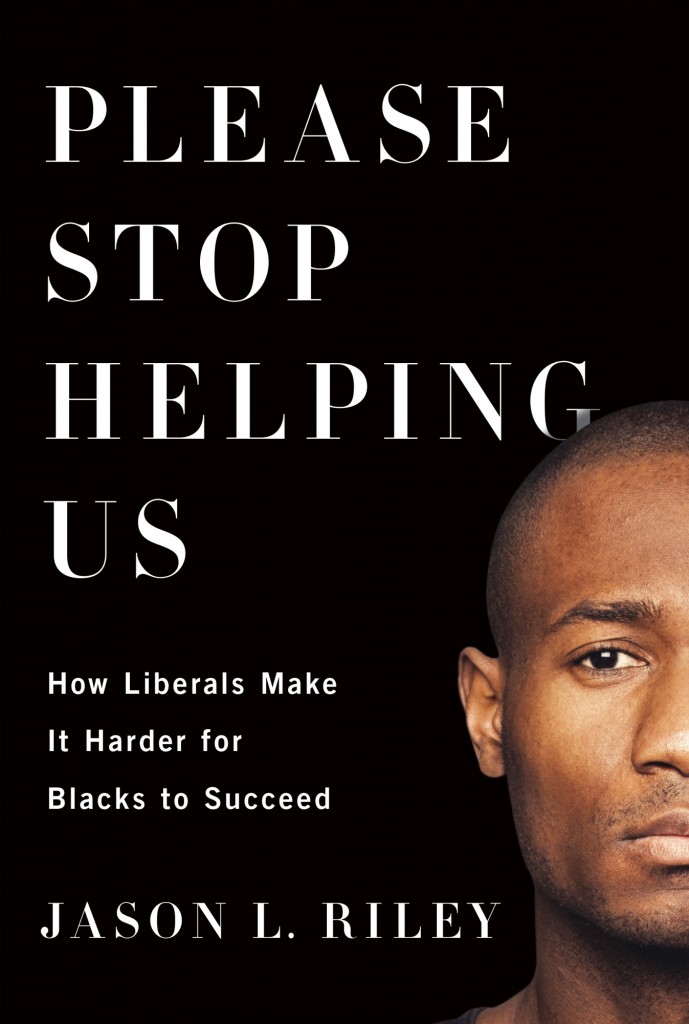Jason Riley: Liberals Shouldn’t Be in Charge of Minority Progress
 Professors and bureaucrats who hustle for government money already know that getting grants to “help” always means overstating the problem. You have to make the intended objects of charity seem as down-and-out as possible. But such hyperbole actually debases and demeans. No government programs can reverse this. The helper is really the oppressor.
Professors and bureaucrats who hustle for government money already know that getting grants to “help” always means overstating the problem. You have to make the intended objects of charity seem as down-and-out as possible. But such hyperbole actually debases and demeans. No government programs can reverse this. The helper is really the oppressor.
In his essay this week, “A Primer on Race,” Thomas Sowell recalls an anecdote from the British Empire: “Back in the heyday of the British Empire, a man from one of the colonies addressed a London audience. ‘Please do not do any more good in my country,’ he said. ‘We have suffered too much already from all the good that you have done.’”
Sowell, of course, is reviewing Jason L. Riley’s new book Please Stop Helping Us: How Liberals Make It Harder for Blacks to Succeed. White liberals won’t like this book. They’ve already built a social and political edifice that depends on being in charge of minorities. Political correctness is their language. Demagoguery is their rhetorical weapon. Winning elections is their game.
Riley finds affirmative action demeaning. Double standards insidiously imply that minorities are too helpless to stand on their own: “Why study hard in school if you will be held to lower academic standards? Why change antisocial behavior when people are willing to reward it, make excuses for it, even change the law to accommodate it?”
Amazon‘s summary of the book asks “Why is it that so many efforts by liberals to lift the black underclass not only fail, but often harm the intended beneficiaries?”:
In Please Stop Helping Us, Jason L. Riley examines how well-intentioned welfare programs are in fact holding black Americans back. Minimum-wage laws may lift earnings for people who are already employed, but they price a disproportionate number of blacks out of the labor force. Affirmative action in higher education is intended to address past discrimination, but the result is fewer black college graduates than would otherwise exist. And so it goes with everything from soft-on-crime laws, which make black neighborhoods more dangerous, to policies that limit school choice out of a mistaken belief that charter schools and voucher programs harm the traditional public schools that most low-income students attend.
In theory these efforts are intended to help the poor—and poor minorities in particular. In practice they become massive barriers to moving forward. Please Stop Helping Us lays bare these counterproductive results. People of goodwill want to see more black socioeconomic advancement, but in too many instances the current methods and approaches aren’t working. Acknowledging this is an important first step.
In short, social and cultural conservatives make the better allies of minorities in America, though their voices have been marginalized by career-serving political machines within the establishment Republican and Democratic parties.
 Professors and bureaucrats who hustle for government money already know that getting grants to “help” always means overstating the problem. You have to make the intended objects of charity seem as down-and-out as possible. But such hyperbole actually debases and demeans. No government programs can reverse this. The helper is really the oppressor.
Professors and bureaucrats who hustle for government money already know that getting grants to “help” always means overstating the problem. You have to make the intended objects of charity seem as down-and-out as possible. But such hyperbole actually debases and demeans. No government programs can reverse this. The helper is really the oppressor.